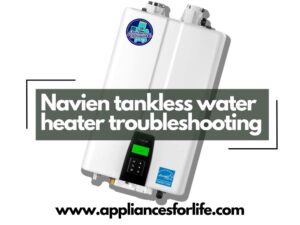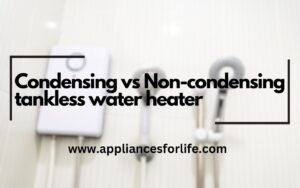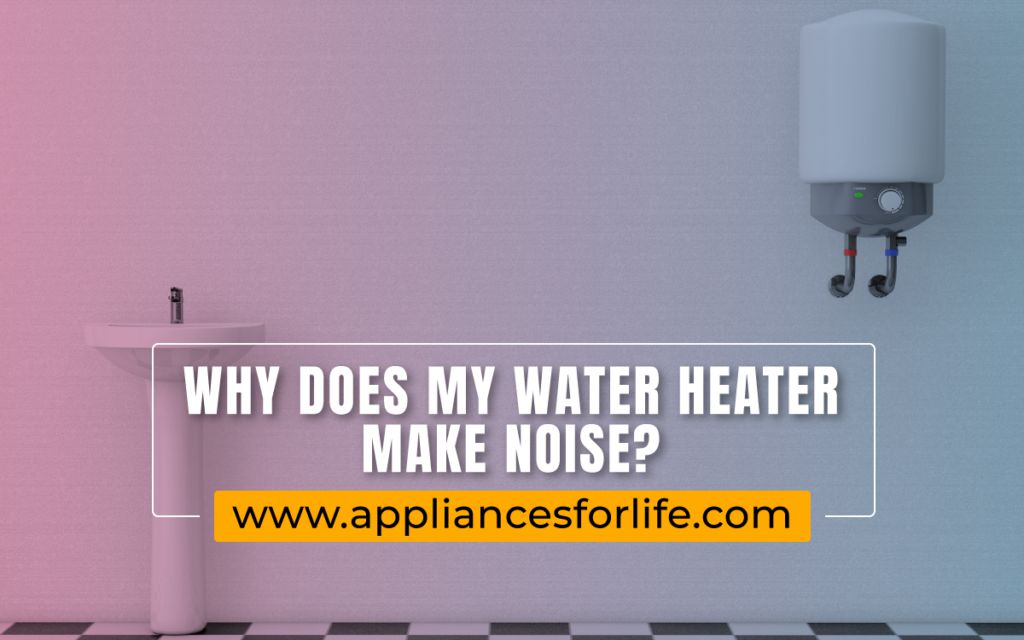Why Does my Water Heater make noise? 11 Potential Causes
- In this article lets explore 11 potential causes of water heater noise and how they could be corrected
A water heater is essential to any home, providing hot water for showers, dishes, and laundry. But when a water heater starts making noise, it can be frustrating and even alarming. Water heaters can make all sorts of noises, from rumbling and popping to banging and whining.
Most of these noises are caused by mineral buildup or sediment in the tank, and they’re usually nothing to worry about. But sometimes, they can be a sign of a serious problem. If your water heater makes any of these four noises, it’s time to call a plumber.
There are several reasons why a water heater might start making noise, ranging from simple issues like sediment buildup to more serious problems like a damaged heating element. In this article, we’ll explore 11 potential causes of water heater noise and what you can do to fix the problem.
11 Potential Causes of Water Heater Noise
Sediment Buildup
One of the most common causes of water heater noise is sediment buildup inside the tank. As the water heats up, it breaks down into minerals like calcium and magnesium, which settle at the bottom of the tank. Over time, this sediment can harden and form a crusty layer that insulates the heating element and prevents proper heat transfer. This can cause the heating element to overheat and make noises like popping or sizzling.
If this happens, you’ll need to flush the tank to clear out the sediment. To do this, turn off the power to the water heater and attach a garden hose to the drain valve at the bottom of the tank. Open a nearby hot water faucet and turn on the valve to let the water drain until it runs clear.
If the sediment buildup is severe enough, it can damage the tank. The best way to prevent sediment buildup is to have your water heater flushed every six months to a year. This will remove the sediment and help prolong the life of your water heater.
Corrosion
Another common cause of water heater noise is corrosion. Corrosion occurs when the metal tank and heating element are exposed to oxygen and water vapor, causing them to break down and form rust. This rust can flake off and build up inside the tank, causing it to make noises like rattling or shaking.
This build-up can also cause the tank to overheat and eventually fail. To prevent this, it’s important to have your water heater serviced by a professional every few years. If you hear these noises, you must call a plumber immediately. Rust can also cause the tank to leak, which can lead to serious water damage in your home.
Loose parts
Another potential cause of water heater noise is loose parts. Over time, the nuts, bolts, and screws that hold the water heater together can become loose, causing the tank to shake or vibrate when in use. This can also cause the heating element to become loose and make noises like popping or sizzling.
If you hear these noises, it’s important to turn off your water heater and call a plumber right away. These noises can signal that your water heater is about to fail and could cause serious damage to your home if it isn’t repaired.
You can try to fix the issue yourself by tightening any loose nuts, bolts, or screws. However, if you’re uncomfortable doing this, it’s best to call a plumber. They will be able to fix the issue and ensure that your water heater is working properly.
Incorrectly sized tank
If your water heater is too small for your home, it will have to work harder to heat the water, causing it to make noises like banging or knocking. Likewise, if your water heater is too big for your home, it will cycle on and off more frequently, which can also cause noise.
The size of your water heater is important, but so is the type. Tankless water heaters are becoming increasingly popular because they are more energy-efficient than traditional tank water heaters. Tankless water heaters heat water only when you need it, so they are less likely to cause the type of water heater noise caused by a tank that is too small or too large.
Thermostat issues
If the thermostat on your water heater is set too high, it can cause the water to boil and make noises like banging or knocking. Conversely, if the thermostat is set too low, the water heater will have to work harder to heat the water, which can also cause noise.
If you have an electric water heater, it may also cause the elements to burn out prematurely. The best way to avoid these problems is to set the thermostat to 120 degrees. In either case, it’s a good idea to have a professional check out your water heater to ensure the thermostat is set correctly and to see if there are any other issues.
Loose pipes
If the pipes that supply water to your water heater are loose, they can bang against the walls or floors when the water is turned on, causing damage and noise. Also, check these pipes for moisture since leaks can cause significant damage, especially if they are located behind the walls.
Plumbing leaks can go undetected for a long time, especially if they are slow leaks, which is another reason to have them fixed as soon as they are discovered. If the leak comes from a pipe, tighten the unions or other connectors.
If the leak is coming from a drain or other fitting, you can try to tighten the fitting, although this will only work if it’s not corroded or damaged. Use a pipe or adjustable wrench to turn the fitting until it is tight. You must replace the washer or packing if the leak comes from a faucet or other valve. First, turn off the water to the fixture by closing the shutoff valve under the sink.
Water hammer
A water hammer is a condition that occurs when the water in the pipes is suddenly forced to stop or change direction. This can cause a banging noise. Imagine, if you will, turning on a faucet in your home. The water rushes out with force and then hits the end of the pipe with an equal and opposite force. This is what causes the water hammer. When this happens in your piping system, it can cause many problems.
A water hammer can also cause pipes to leak or break. It can damage valves and other fittings. A water hammer can be caused by a variety of things, including a sudden change in the direction of the water, a sudden change in the speed of the water, or a closed valve.
An obstruction can also cause it in the pipe, such as a piece of debris. When a water hammer occurs, it can cause a variety of problems. These problems range from a simple banging noise to a more serious issue, such as a pipe leak or a broken pipe. Sometimes, a water hammer can damage valves and other fittings.
Worn out parts
Over time, the parts in your water heater can become worn out from use. This can cause them to make noise as they try to function properly. You may also notice that your water heater is not working as efficiently as it used to. This is because the parts are not able to function as they should. If you notice any of these issues, it is important to have a professional take a look at your water heater. You may hear odd noises such as creaking, popping, or banging. These sounds indicate that it is time to replace your water heater. While water heaters are built to last many years, they will eventually need to be replaced. Most models have a lifespan of about 10 years.
Improper installation
If your water heater is not installed correctly, it could cause various problems, including noise. Ensure your water heater is installed by a qualified professional to avoid this issue. If you have any doubts about whether or not your water heater was installed properly, contact a professional for an inspection. Many choose to install their water heaters, but this is not always the best option. Improper installation can lead to several problems, including noise.
To avoid this issue, it is best to have a qualified professional install your water heater. If you are unsure whether your water heater was installed correctly, you can contact a professional for an inspection. Many try installing water heaters, but this is not always the best option.
Broken dip tube
A broken dip tube, a vertical tube inserted into the water heater to feed the burner, can allow water to splash inside the tank and make a noise. This usually happens when the dip tube gets cracked or broken, and water starts splashing inside the tank.
The simplest solution for this problem is installing a new dip tube. However, you can also solve this noise issue by filling the tank with water so that no air is left inside. This way, any liquid that splashes inside will be water instead of air.
Another way to solve this problem is to install an expansion tank. This will help because it will give the water somewhere to go when it heats up and expands. The final solution is to bleed the air out of the system. This can be done by opening a valve at the highest point in the system and letting the air escape until water starts coming out.
Broken pilot light
So what happens if the pilot light, which is basically a tiny flame on your gas water heater, is out? The burner won’t function properly. You’ll hear a loud roaring noise. That’s because there isn’t enough fuel in the burner to cause an explosion like there would be if everything went smoothly. But when you hear that roaring noise, it indicates that there’s enough fuel in the burner to cause an explosion of some sort. It doesn’t have enough power to get sucked into the water pipe and shake the house.
But what does this do with your water heater and furnace? As we just learned, gas boilers use gas burners as their primary heat source. And gas burners don’t always burn on the first try. So we need another way to keep the boiler warm until our gas burner fires properly. That’s where the thermal reactor comes in. A thermal reactor is a heat source that keeps the boiler warm until the gas burner can do its job.
In most cases, the thermal reactor is a simple coil of metal heated by electricity. The coil is placed in the boiler, and as it heats up, it transfers heat to the water in the boiler. This keeps the water in the boiler warm enough that the gas burner will have an easier time igniting it when it finally does fire.
Frequently Asked Questions:
1. Is the water heater rattling noise normal?
A water heater making any kind of noise is not normal, so as soon as you hear funny sounds, it might be time to check it out for what could be wrong.
2. Does an electric water heater make noise?
While it is unusual for an electric water heater to make noise, one cannot rule out the possibility.
3. Does the water heater make noise when heating?
When diagnosing a noisy water heater, you first need to identify the source of the noise. Is it coming from the tank itself or the pipes? If it comes from the tank, it is probably due to sediment build-up. It could be due to high water pressure or a loose connection if it comes from the pipes.
Conclusion
There are many reasons why your water heater might be making noise. Some of these reasons are easily fixable, while others may require the help of a professional. Contact a qualified technician for assistance if you are unsure of what is causing the noise or how to fix it. You can enjoy your water heater’s quiet, efficient operation for years by troubleshooting the issue and taking care of any necessary repairs. Thanks for reading! We hope this article was helpful. Have a great day or night!
00 HOURS 57 MINUTES
ESTIMATED TIME DESIGNING AND UPLOADING THIS ARTICLE
9 HOURS 42 MINUTES
ESTIMATED TIME RESEARCHING AND WRITING THIS ARTICLE
You Might Also Like

Troubleshooting Rinnai Error Codes: A Complete Fixing Guide
Rinnai water heaters have gained significant popularity for their advanced technology and efficient performance. They provide hot water for both residential and commercial settings. As dependable as these units are, like any complex appliance, they may encounter occasional issues that could disrupt their functionality. This

The Best Rheem Professional Classic Rtex Electric Tankless Water Heaters
If you’ve been looking for high-quality tankless water heaters, you may have encountered Rheem. Rheem is a household name with decades of experience in water heating, and this article explores some of the best Rheem professional classic Rtex electric tankless water heaters. A standard Rheem

Navien tankless water heater troubleshooting
Navien tankless water heater troubleshooting is necessary to get it into perfect working condition. A Navien tankless water heater is famous among many homeowners due to its energy efficiency and continuous hot water supply. While you use a Navien tankless water heater, you have little

AO Smith Tankless Water Heater Troubleshooting: Steps-by-Step Guide
A.O. Smith Water Heater Warranty Generally, AO Smith tankless water heaters are guaranteed for five years on tank failure and one year for the failure of any of its parts. Hence, if you discover a leaking tank within five years of usage, you. Or, if

How to Use an LG Front Loader and Top Loader Washing Machine?
Washing machines are a great appliance to have around the house because they make our domestic chores easier and more convenient, most particularly doing laundry. For many years now, people have stayed loyal to the brands they believe have always given them everything they’ve ever

Condensing vs Non-condensing tankless water heater
What Exactly Is a Tankless Water Heater? If you cannot associate with the group identified above, you may need to learn what tankless water is and what it does- a tankless water heater is exactly what it implies, a water heater without a tank. Traditionally,

Rheem RTEX-18 Electric Tankless Water Heater Review
Ideal for households, these Rheem tankless water heaters are tailored to deliver efficient hot water on demand. Introduction: A reliable and energy-efficient hot water solution is essential in today’s fast-paced world. This comprehensive Rheem RTEX-18 electric tankless water heater review delves deep into its specifications,

What size of tankless water heater do I need?
It’s always surprising how essential tankless water heaters are today. However, despite their growing importance, they rarely get talked about; or better put – they don’t get talked about enough, making them underrated. Tankless water heaters have everything their traditional counterparts everyone is used to

Rinnai V94XIN Tankless Water Heater (Product Review)
Rinnai is one of the best tankless water heater brands, and its five-year reputation has firmly established its products as unparalleled in the market. Recognized for innovation and reliability, the Rinnai water heater range exemplifies advanced hot water solutions. This comprehensive review delves into a

What are the Most Reliable Tankless Water Heater Brands? Our Top Picks
It’s no longer news that we rely heavily on home appliances that offer efficiency, convenience, and savings. And when it comes to hot water, traditional water heaters, with their limited supply, often fall short of meeting our needs. This is where tankless water heaters step


